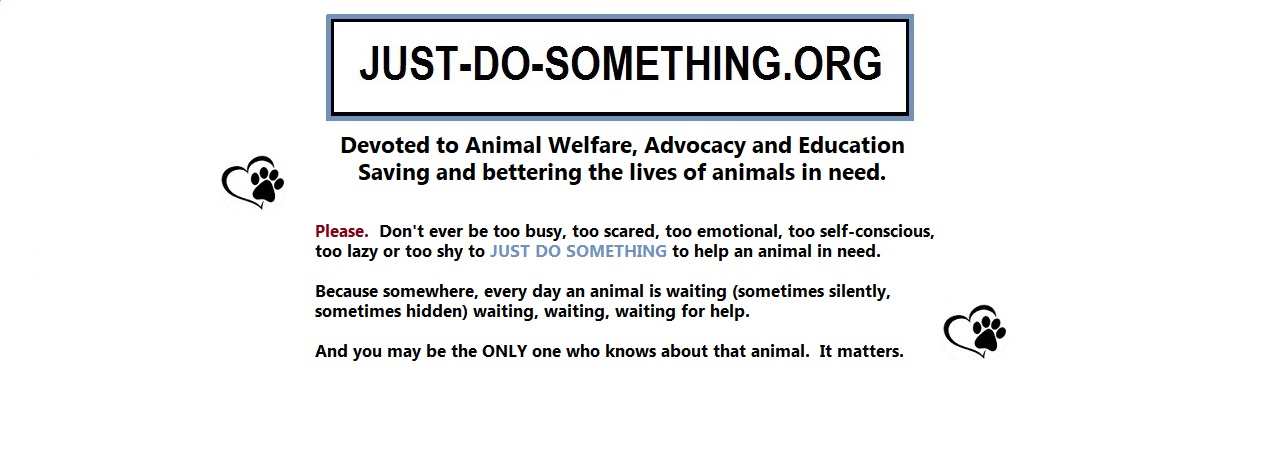August 20, 2014
Guest Blogger, Daphne Holmes (Writer)
Before you Comment, take a moment to review our guidelines!
Cruelty Against Animals Shames Humanity
Genesis 1:26 – And God said, Let us make man in our image, after our likeness: and let them have dominion over the fish of the sea, and over the fowl of the air, and over the cattle, and over all the earth, and over every creeping thing that creepeth upon the earth.
We’re good, but we could be a lot better
There are many things for which we humans can be rightfully proud of ourselves. We have made remarkable discoveries, and have learned how to live longer and with less hardship than our ancestors could have ever imagined. But there are also areas of our lives for which we have individually and collectively brought shame upon ourselves, not the least of which is our treatment of our fellow beings, both human and non-human.
How often do we see another being who is starving, frightened, sick, or suffering from abuse by another, and we turn aside and go about our own business without giving it a second thought?
The sad fact is that we simply fail to empathize with the suffering of animals. Perhaps we are afraid that by getting too close to them, that suffering, and that abuse, will somehow rub off on us.
Perhaps we’re afraid of getting hurt ourselves if we try to intercede when we witness another person venting their rage. What if that frightened dog bites me? What if that crying cat is diseased? So we close our eyes and walk away, eager to set aside any awareness of the pain.
Maybe we even tell ourselves that the victim is “just an animal,” and doesn’t experience suffering the way humans do. It is a comforting lie we tell ourselves, but it is a lie, all the same.
And at our core, we know it is a lie, but we convince ourselves to avoid the shame that we feel.
For unwanted animals, the odds aren’t good at all. Every year, millions of dogs, cats, horses, donkeys, and other animals are put to death for no better reason than that there was nobody who cared enough to keep them alive. Perhaps they were puppies that didn’t behave the way their humans thought they should. Some pets are guilty only of the “crimes” of growing old or becoming inconvenient. A few of the lucky ones get turned in to humane, no-kill shelters, where they will at least get enough food to survive, enough veterinary care to ease their discomfort, and enough attention to give them hope that not all humans are uncaring and cruel.
The less lucky animals get “rescued” by animal control officers who take them to the local pound, where they will be fed and housed for a few days, until either their owners or some hopefully compassionate humans come and retrieve them, or they are at least given a quick death, and their lifeless bodies sent to a landfill somewhere.
The least fortunate victims get taken somewhere far from the only home they’ve known and dumped at the side of the road. “They’re animals. They can make it on their own.” Another lie. Most animals discarded in this way either starve to death, get hit by a car, or get torn apart by predators. The ones who do manage to survive for any length of time experience the same hunger, fear, and loneliness that we humans would feel if we were discarded by those we love.
And they inevitably fall prey to diseases and parasites that tear them down slowly and make them even easier prey. There just isn’t such a thing as a happy ending for these animals unless, by some quirk of fate, a human passes by and sees their fear and their pain, and invites the animal to come into their family. Some animals hold to the hope that such a thing can happen.
You’ve seen them at the side of the road, looking at you and wondering, “Are you here to take care of me? Please?”
Become a true steward
We humans believe that we truly do have dominion over the creatures of the earth, but we apparently forget what that actually means. It does not mean that we can use and exploit our fellow creatures. It isn’t license to vent our cruelty on them, or to deny them their needs, which aren’t really any different than our own. And it isn’t permission to just throw them away when they no longer amuse us or accessorize our lives the way we think they should. The greater part of dominion is, after all, stewardship. If we see another in dire need or suffering, our moral duty is to try to meet that need or end that suffering as best we can, not to increase it or turn aside and ignore it. But we must realize that the creatures with whom humanity has chosen to share our lives have grown to depend on us for so much, but that they have so much more that they want only to give back to us. First and foremost, we must realize that they feel joy and sadness, and kindness and cruelty, as deeply as we do. We have but to open our eyes and look into theirs, and we will know. And perhaps, one day, we will finally set aside the callousness that is our deepest shame.
Author:
Daphne Holmes contributed this guest post. She is a writer from www.arrestrecords.com (under construction – but please check out their blog page), and you can reach her at daphneholmes9@gmail.com.)









Hey – very nice blog!